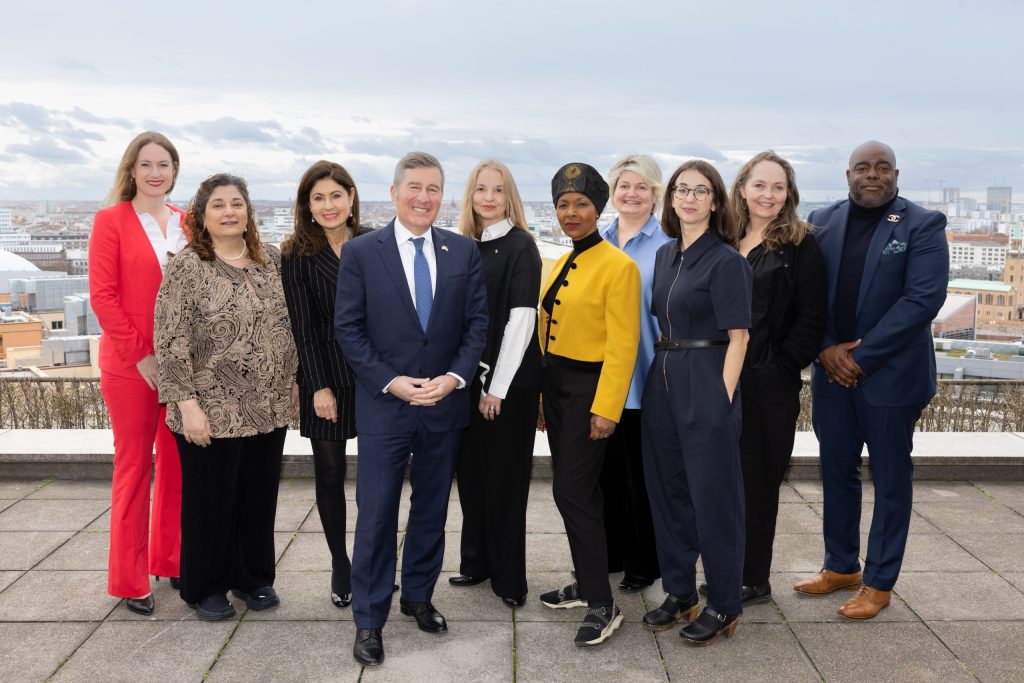Charles Rivkin Remarks at Berlinale on Diversity, Equity, and Inclusion
Remarks as Prepared for Delivery by MPA Chairman and CEO Charles Rivkin
Thank you, Christiane, for that kind introduction, and a big thanks to our friends at Morrison & Foerster for co-hosting another exciting panel with the Motion Picture Association.
It is wonderful to be back in Berlin! This is a city that lives and breathes culture, and I am thrilled to join you all in person at Berlinale for the first time since 2020 to once again celebrate the power of cinema.
I’m also delighted that Berlinale, one of the world’s largest festivals, continues to promote films that are daring and inventive, and create space for fresh new voices in cinema. Promoting the plurality of voices and a more inclusive society has been a crucial part of Berlinale’s legacy since its founding in 1951.
I am so honored today that the legendary filmmaker Euzhan Palcy – the recipient of the 2022 Honorary Academy Award, an Oscar for her lifetime achievement – will join our panel discussion.
Euzhan, you are a true legend. We first met many years ago when I was U.S. Ambassador to France, and I’m so grateful to have this chance today to reconnect with you and congratulate you on your award.
Throughout your career, you have been a trailblazing force for creativity and diversity in the film industry. Your award-winning film, A Dry White Season, marked the first time a major Hollywood studio produced a film directed by a black woman.
That this only happened as recently as 1989 shows how long it took to bring about change – and how much work still lies ahead of us.
On that note, John Gibson, MPA’s Vice President for External & Multicultural Affairs, will also join today’s panel conversation. John leads our Diversity, Equity, and Inclusion program on behalf of our member companies and will discuss the work our studios and partners are doing to build a more diverse and representative industry and workforce in the United States.
As we engage on this crucial topic, it is important to remember that every country and every region has its own unique history of struggle and triumph, of empire and colonization, of discrimination and subjugation.
These forces have shaped our respective societies in different ways and bear heavily on our approaches to notions of what D, E, and I means.
And while audiences from Boston to Berlin to Beirut are clamoring for greater diversity both on- and off-screen, their definitions and thus their expectations vary from place to place.
But what is clear is that audiences around the world are demanding more authentic and more nuanced and more textured portrayals of their societies and their experiences. And it is our privilege and our responsibility to reflect this complexity and tell those stories with depth and verve.
As chairman and CEO of the Motion Picture Association, representing six of the world’s largest studios, I am proud to share some of the ways in which our member studios, working with local partners, are reimagining well-loved stories and reshaping perceptions of previously underrepresented – or stereotyped – communities.
I am thinking of Disney Plus’s Sam – A Saxon, based on the real-life story of East Germany’s first Black police officer, and Sultan City, a dark comedy featuring a German-Turkish family.
And then there is Oskar’s Dress, a family comedy about a transgender boy, which was co-produced by Warner Bros. and was shortlisted for the German Film Award 2023. And the German urban crime drama Rheingold, also co-produced by Warner Bros.
On Netflix, shows seen by audiences around the world, like The Harder They Fall, Never Have I Ever, Love on the Spectrum, Yasuke, and Squid Game, may have been intended for domestic consumption. But in sparking global interest and appeal, they have served to broaden representation, expand empathy, and deepen understanding of other cultures and societies.
Here in Germany, Netflix also gave us The Swimmers, a compelling drama about Syrian refugees in Berlin that not only moved audiences but also humanized refugees as people with hopes, dreams, skills, and memories of their homelands.
Of course, we’re not just talking about what appears on screen. The MPA and our studios are working off camera, below the line, to help diversify the talent pipeline and create new opportunities for young people of color and other under-represented communities.
I’m also encouraged by the work of the European Film Market, which just last week hosted a day-long seminar here in Berlin to set a policy agenda for greater representation. The event brought together more than 100 industry professionals from 21 countries with the goal of lasting change.
We still have a long way to go – clearly. But we are committed to making a difference.
Later tonight, Berlinale will pay tribute to the legendary American filmmaker, Steven Spielberg, with an Honorary Golden Bear for a lifetime of achievement.
This award is, of course, so well deserved. One of the most accomplished storytellers of our time, through iconic films such as Schindler’s List, West Side Story, E.T. and now The Fabelmans, Spielberg has showed us how to look beyond our differences to embrace the humanity we all possess and share the love we all crave.
Thank you all. it is now my pleasure to hand things over to the two moderators of today’s panel – Christiane Stuetzle with Morrison & Foerster, and Sabine Henssler, who leads communications for the MPA in Europe.
Christiane and Sabine?


